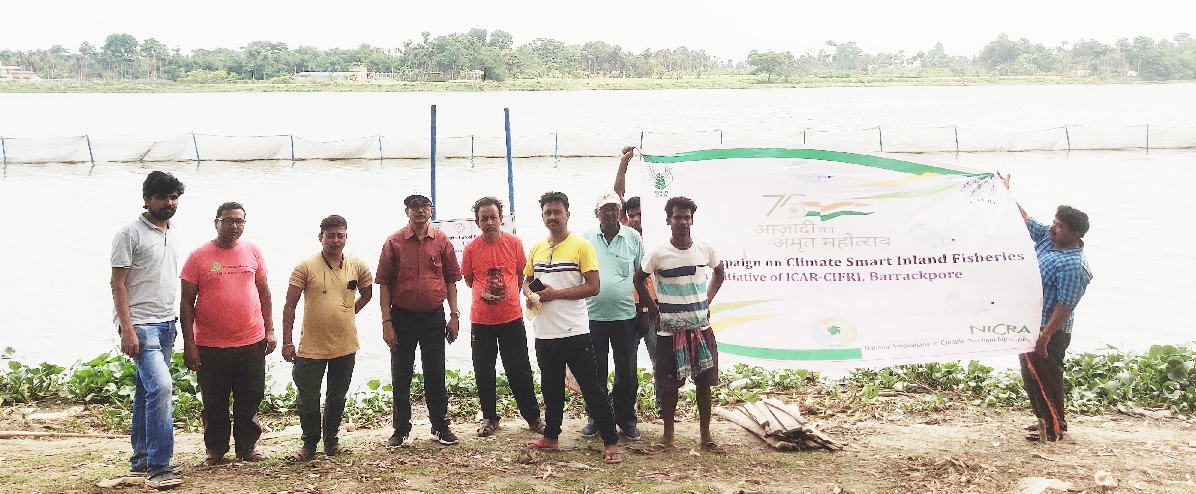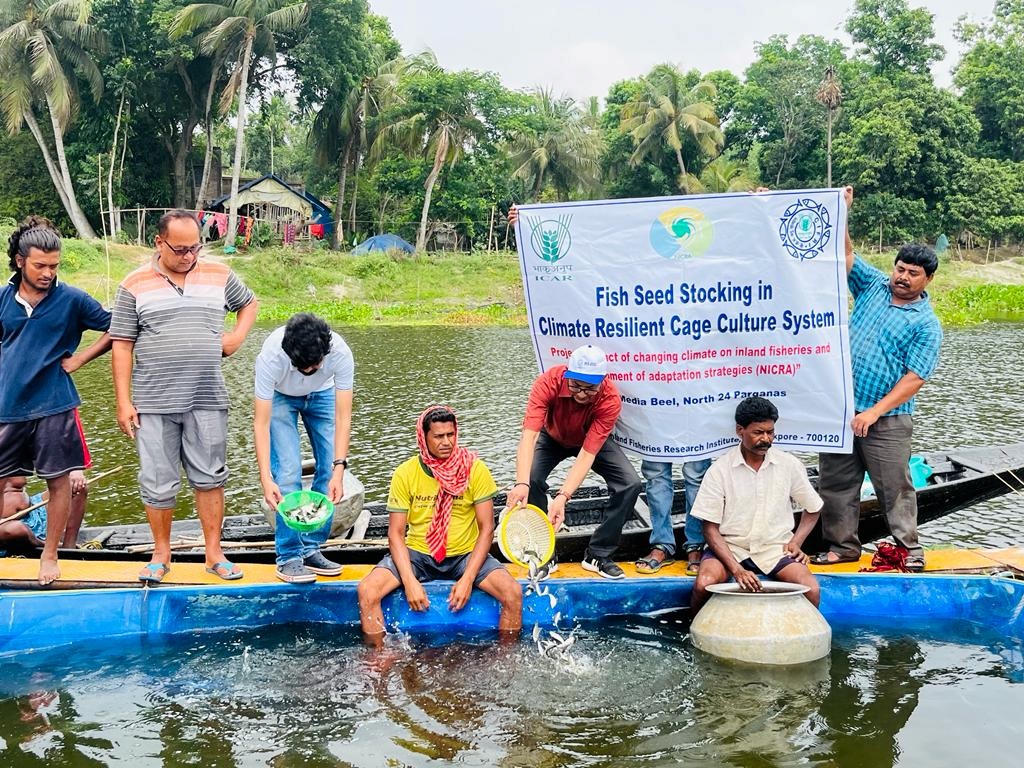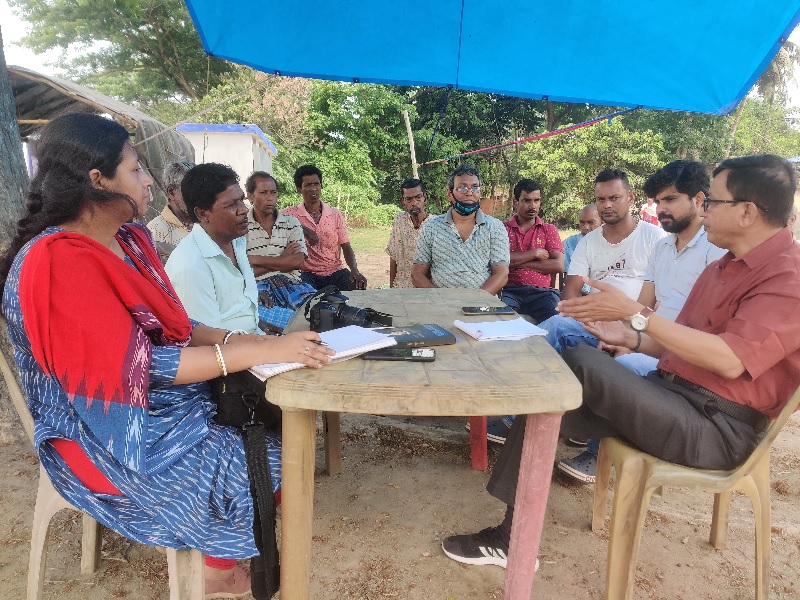Overview
Publications
Recruitment
Intranet
CIFRI Corners'
Climatic variability and its consequences have intensified across the world during the last few decades impacting the food production, income, livelihood and nutritional security of people. The global surface temperature has increased faster since 1970 than in any other 50 year period over at least the last 2000 year as per IPCC 2021report. In the last two decades of the 21st century (2001-2020), the rise in global surface temperature was +0.99oC revealing the pace at which the climate is changing in recent decades. Climate change will alter the water temperature, water levels and flow of the inland waters, and it will exert substantial impacts on aquatic ecology and fisheries. Inland open water resources are important resource for fish production in India which are vulnerable due to overfishing, pollution, loss of biodiversity, invasion of exotic species, sedimentation and habitat destruction. The impact of climate change alongside the anthropogenic factors and other stressors render these ecosystems more vulnerable leaving the income and livelihood of millions of fishers at stake. Major impacts on inland open waters include change in water flow, altered hydrology, thermal stress, occurrence of extreme events, habitat degradation, change in breeding and spawning behavior, and life history traits, leading to adverse effects on aquatic biodiversity and fisheries.













